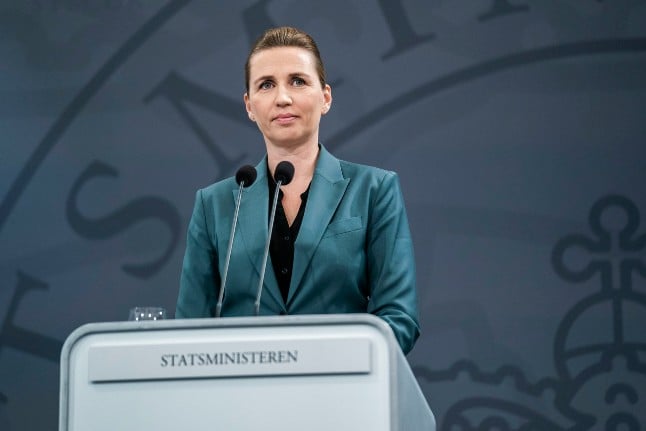FREDERIKSEN
Danish PM: ‘We will not return to Denmark as it was’
Denmark's Prime Minister has warned that when Denmark will start relaxing its coronavirus restrictions after Easter, this does not mean a return to normal.
Published: 6 April 2020 09:43 CEST

Danish Prime Minister Mette Frederiksen announcing the gradual reopening last week. Photo. Martin Sylvest/Ritzau Scanpix
In an interview with Denmark's state broadcaster DR on Sunday night, Mette Frederiksen said that the reopening phase would require new ways of running schools and workplaces, and continued restrictions on bars, restaurants and events.
“My best assessment is – from what I know and from what we have tried so far – that we are going to change a lot in our ordinary lives,” she said on Sunday night. “We will not return to Denmark as it was before March 6.”
Frederiksen announced last Monday that Denmark would begin a gradual lifting of its coronavirus lockdown after Easter, although no exact date has yet been set.
READ ALSO:
In Sunday's interview, she said that continuing restrictions would range from public transport to public and private events.
“We are…not going to be able to squeeze up close together in trains, buses and subways in the way we have become accustomed to,” she said. “Or stand very close together with a whole lot of other people and have a good party together.”
The transition period would also require new ways of working and going to school, she added.
“We will have to work in a more staggered way than we are used to, meeting at different times,” she said. “In the short run, I can't see how all children will be able to attend school, or all young people can start education at the same time.”
She warned that, even though the current numbers look positive, with declining numbers of people being admitted to hospital with infections, this could change rapidly once restrictions are lifted. “The house of cards could fall. And it could fall faster than we imagine,” she said.
Frederiksen also spoke about how the pandemic and its aftermath would impact on her government's ambitious climate plans.
“What was important before coronavirus hit us is still important,” she said. “The fact that we have a strong welfare society, that we want to focus more on education, that the fight against climate change is important. Everything that was important last year is also important today.”
But she conceded that all the spending plans, and investment priorities that the government had set before the crisis would now have to be reconsidered.
“Our world is changed. Our everyday lives are going to changed,” she said.
Url copied to clipboard!


 Please whitelist us to continue reading.
Please whitelist us to continue reading.
Member comments